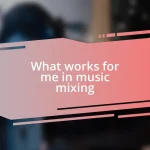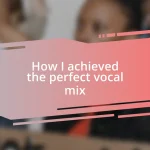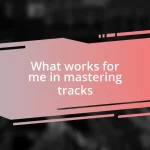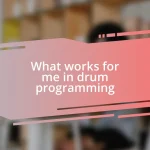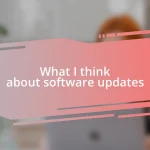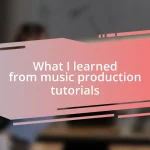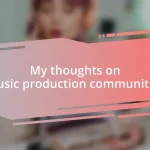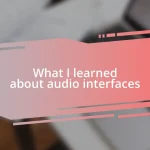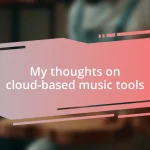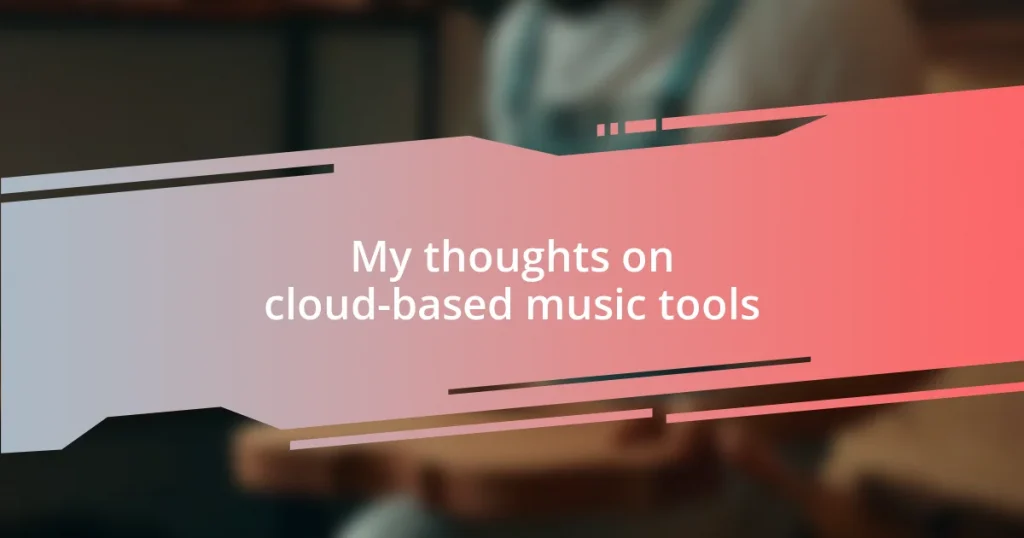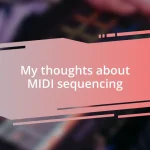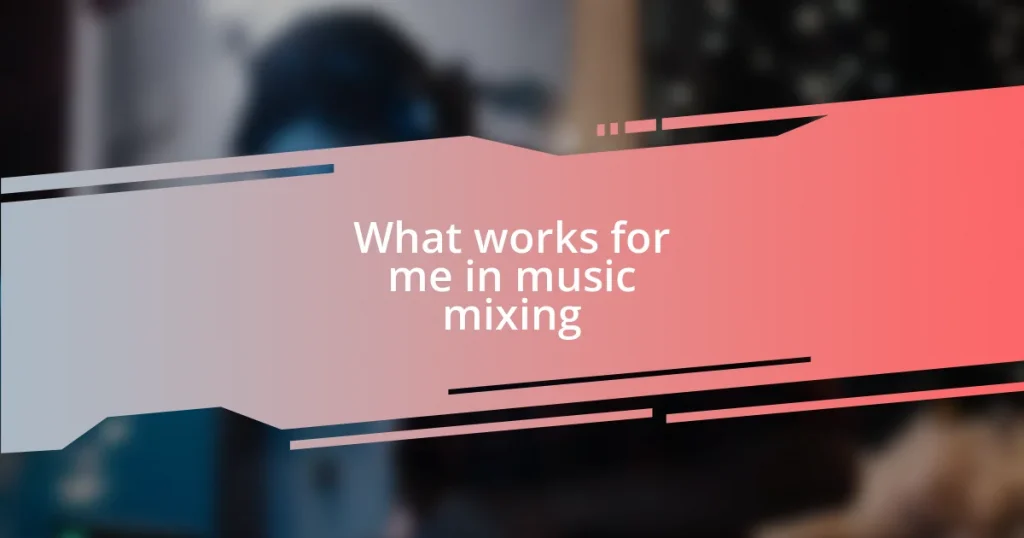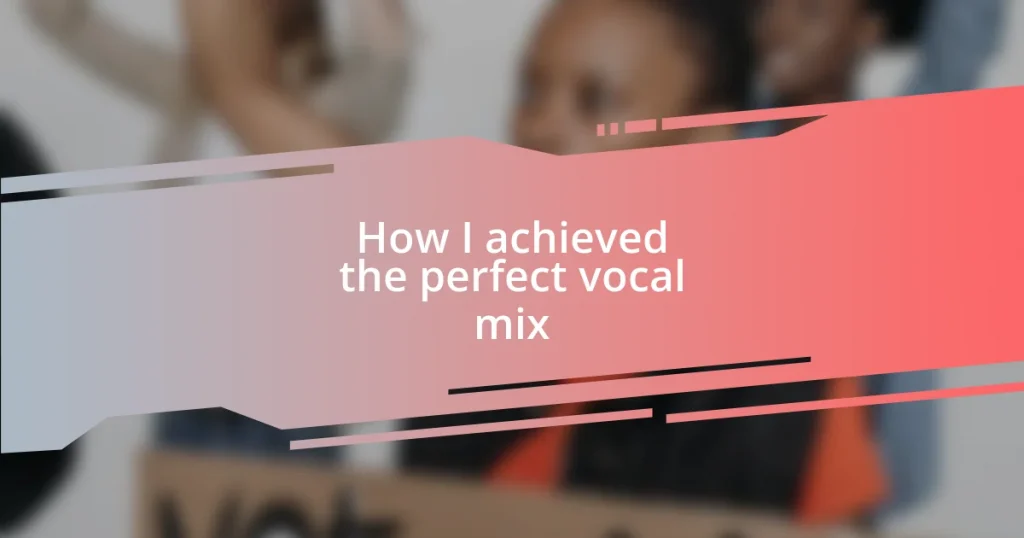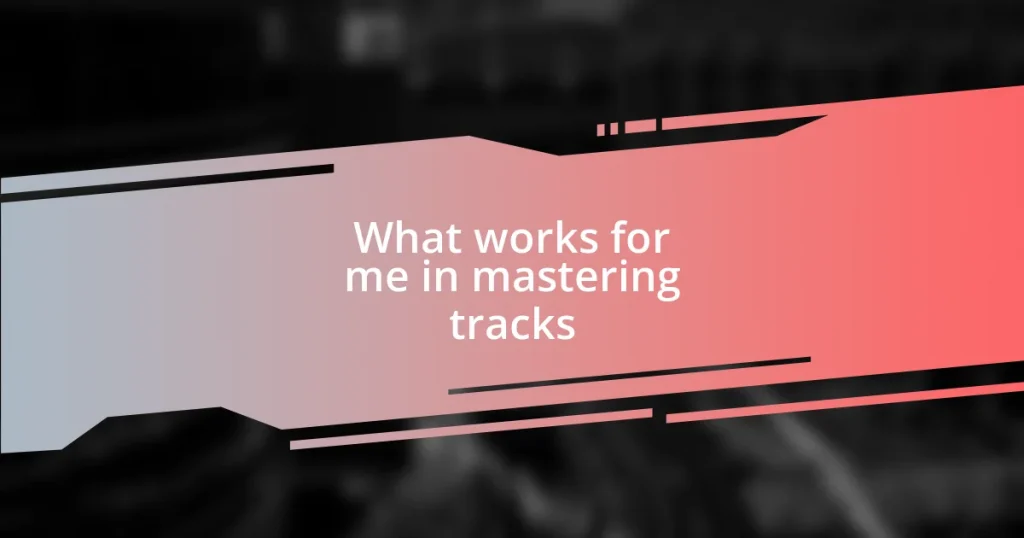Key takeaways:
- Cloud-based music tools enhance collaboration, allowing musicians to create together in real-time from different locations, breaking geographical barriers.
- Key advantages of these services include accessibility, scalability, and cost-effectiveness, democratizing music creation for artists of all levels.
- Popular platforms like Soundtrap, BandLab, and Splice offer unique features that cater to different creative needs, such as real-time collaboration, social networking, and extensive sound libraries.
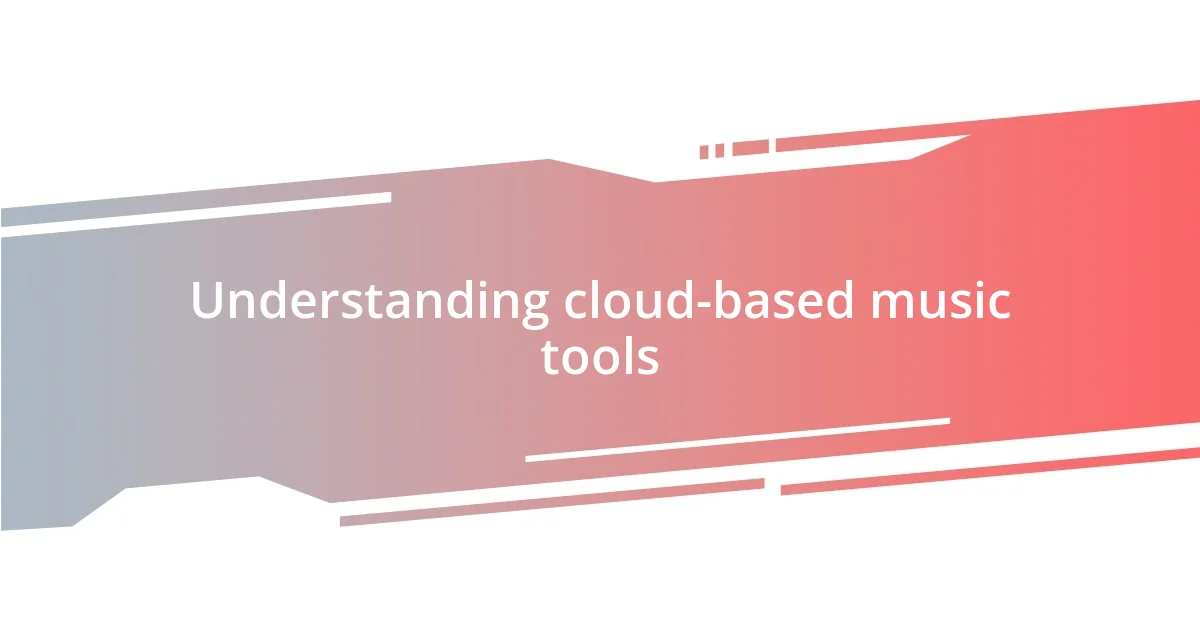
Understanding cloud-based music tools
Cloud-based music tools are fundamentally transforming how we create, share, and consume music. I remember the first time I used a cloud platform to collaborate with a friend on a song—we could work on it from different cities, adjusting tracks in real time. It made the creative process so much more dynamic and fun. Have you ever thought about how this technology enables musicians to connect globally, breaking down geographical barriers?
These tools leverage the power of the internet, allowing for easy access to libraries of sounds, effects, and even full-fledged virtual instruments. I often find myself exploring endless loops and samples, and it’s incredible how this abundance of resources can spark creativity. It’s as if the whole world of music is available at my fingertips, ready to inspire or enhance my projects. Have you ever felt that moment of joy when a simple tool opens up a new avenue for creativity?
Moreover, cloud-based systems facilitate collaboration and sharing in ways we couldn’t have imagined a decade ago. I vividly recall working on a track with a musician overseas; discussing ideas in real-time brought a unique energy to the project. The ability to annotate and leave feedback on specific parts really fostered our collaboration. Isn’t it fascinating how technology can foster these connections and collaborations, making music a truly communal endeavor?
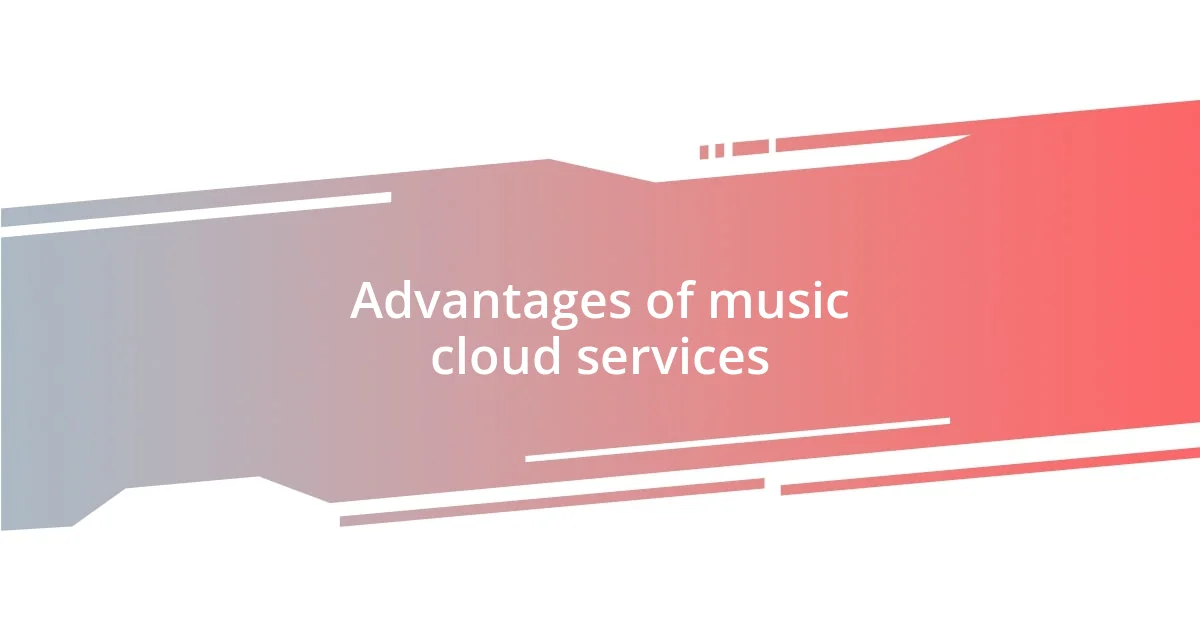
Advantages of music cloud services
The advantages of music cloud services are genuinely game-changing for artists at all levels. One major benefit I appreciate is the seamless access to a vast pool of resources, anytime and anywhere. I remember a late-night session when I was looking for a specific sound to elevate my track. I logged into a cloud service and—boom—the perfect synth loop was just a search away. That’s the beauty of having everything stored online; inspiration can strike at any moment.
Here are some key advantages to consider:
- Accessibility: Your music projects are available on any device with internet access.
- Collaboration: Easily share projects with others, facilitating real-time feedback and iteration.
- Storage: No need for bulky hardware; all your music files are safely stored in the cloud.
- Scalability: As your needs grow, you can upgrade storage or features without hassle.
- Cost-effective: Many services offer affordable plans, making them accessible even for beginners.
It’s pretty remarkable how these services truly democratize music creation, allowing anyone with a passion to dive in. Just last week, I collaborated with an artist across the globe, and the joy of seeing our ideas come to life together was indescribable. It’s moments like these that make me value the cloud even more.
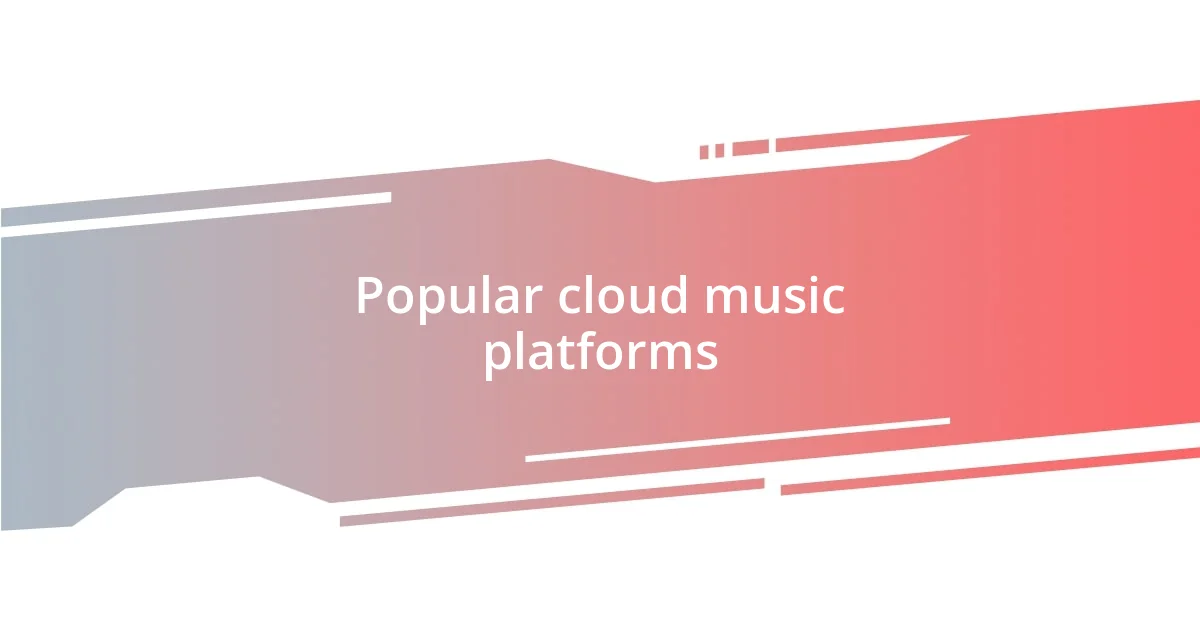
Popular cloud music platforms
When it comes to popular cloud music platforms, there are a few heavyweights that stand out in the scene. For instance, I’ve personally enjoyed using platforms like Soundtrap, which is fantastic for real-time collaboration. One time, I worked on a project with a friend who was traveling abroad, and being able to create together while we were continents apart was nothing short of exhilarating.
An intriguing platform worth mentioning is BandLab. This service caught my attention due to its extensive social features; it’s not just about making music, but also about building a community. I remember one evening when I posted a track, and the feedback poured in from users around the world. It felt rewarding to connect with others who share the same passion for music.
Then there’s Splice, which I find particularly useful for sample browsing. The variety they offer is impressive, and I often spend hours exploring their library. Once, I stumbled across a rare sound that perfectly suited my genre, and it transformed my entire track. It’s almost like discovering hidden treasures within a vast ocean of creativity.
| Platform | Key Features |
|---|---|
| Soundtrap | Real-time collaboration, recording in the browser, and easy sharing options. |
| BandLab | Social networking, music creation tools, and royalty-free music. |
| Splice | Extensive sound library, sample packs, and cloud backup for projects. |
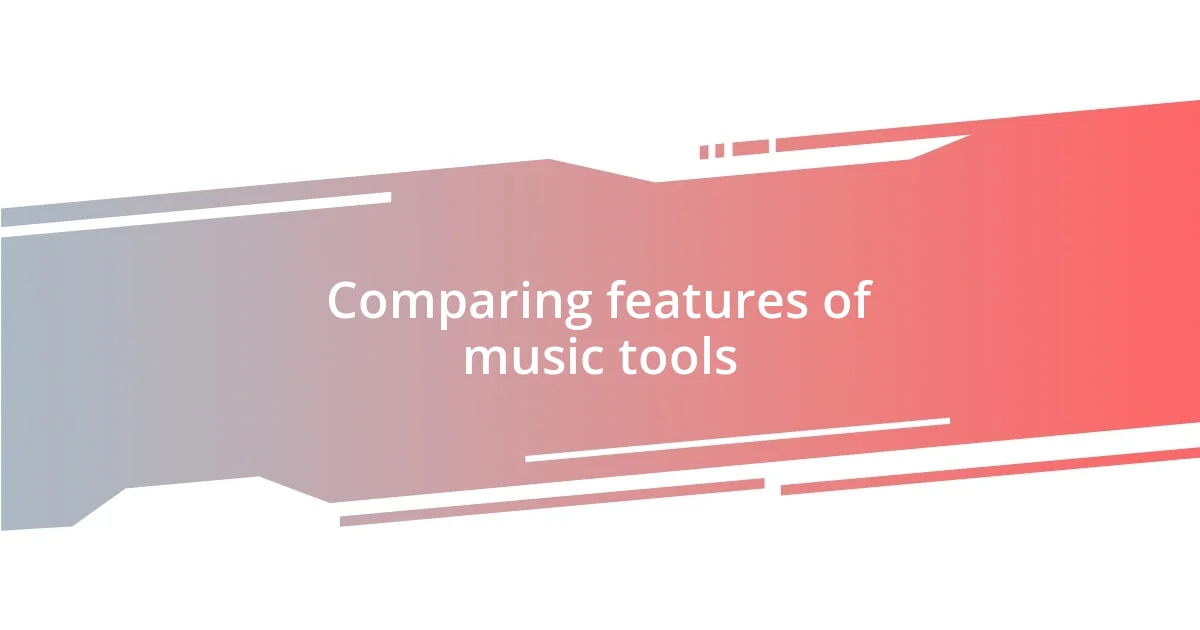
Comparing features of music tools
When comparing the features of various cloud-based music tools, I’ve found that each platform has its unique strengths that cater to different needs. For example, while Soundtrap excels in facilitating real-time collaboration, I’ve noticed that its interface can feel somewhat limited for in-depth editing. Have you ever felt like a platform just didn’t quite fit your creative workflow? I’ve certainly experienced that frustration.
On the other hand, BandLab really stands out with its social networking features. I remember posting a rough mix of a track and receiving constructive feedback almost instantly. It was like having a mini focus group of music enthusiasts right at my fingertips. Isn’t it fascinating how the right community can elevate your work? This interactive aspect can make the creative process feel less isolating and more vibrant.
Then there’s Splice, which honestly feels like a playground for sound designers. I often dive into their extensive library for inspiration. Just the other day, I stumbled upon a unique guitar riff that sparked an entirely new direction for my project. It made me think about how much the right sample can influence the mood of a piece. What about you—how important are samples in your music creation process? For me, they can be transformative.
